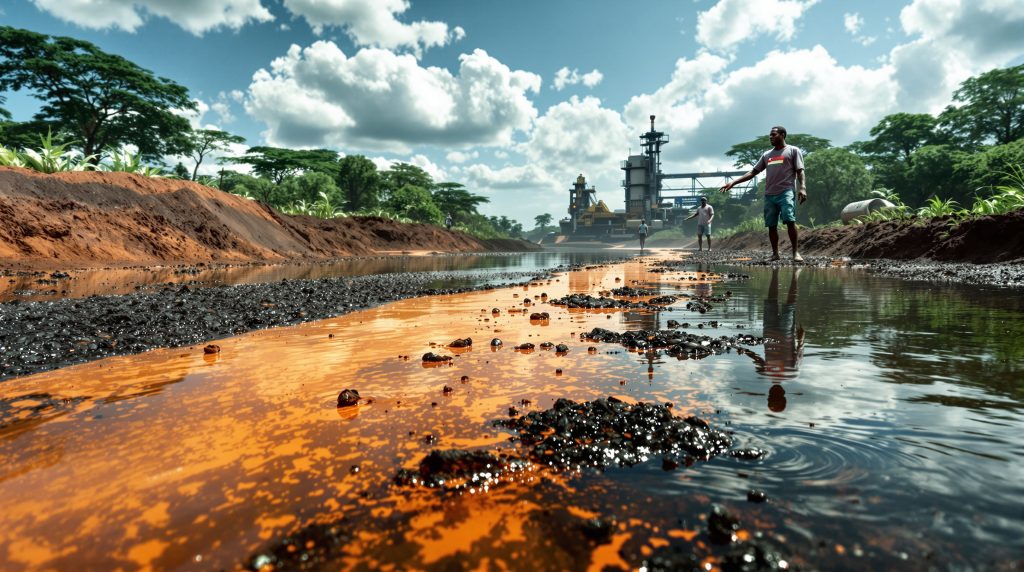Zambia says it may demand additional compensation from a Chinese-owned copper mine after a toxic waste spill in February left communities along the Kafue River exposed to dangerous chemicals.
Authorities warned that payouts will depend on the findings of a full environmental and health assessment.
The spill occurred when a dam holding mine waste at Sino-Metals Leach Zambia collapsed, releasing highly acidic water laden with heavy metals.
The disaster contaminated a vital river that provides drinking water to nearby communities.
The company has apologised and promised compensation, but Vice-President Mutale Nalumango said on Wednesday, "may not be all," emphasizing that the safety of Zambians was "non-negotiable."
Initial reports from the company suggested that about 50,000 tonnes of waste had escaped into the waterways.
However, an investigation by Drizit, a South Africa-based environmental firm hired by Sino-Metals, revealed that 1.5 million tonnes of toxic material had actually been released.
The company said roughly 900,000 cubic metres of toxic tailings remain in the environment, containing dangerous levels of cyanide, arsenic, copper, zinc, lead, chromium, cadmium, and other pollutants that pose long-term health risks, including organ damage, birth defects, and cancer.
Sino-Metals has challenged the Drizit findings, terminating the contract over alleged "contractual breaches."
Meanwhile, travel advisories from Finland and the United States highlighted severe contamination in water and soil, prompting the US embassy to withdraw personnel from Kitwe and nearby areas.
Zambia’s government, however, has played down the threat, insisting there are no serious public health concerns.
Human Rights Watch reported that the spill has devastated local livelihoods, killing fish, destroying crops, and causing livestock deaths.
Many residents continue to experience headaches, coughing, diarrhoea, and other health problems. Some affected families also claim they have yet to receive the compensation promised by Sino-Metals.
Zambia has imposed a fishing ban along the Kafue River and dispatched the air force and speedboats to apply lime in an effort to neutralize acidity in the waterways.
The initial compensation of $580,000 (Sh78.85 million) was described by Vice-President Nalumango as "a step in the right direction," but she noted that further payouts would be pursued if damage proves more extensive or long-lasting than initially assessed.
Zambia, one of the world’s top copper producers, relies heavily on mining for economic stability, adding urgency to resolving the environmental and community impact of the spill.

